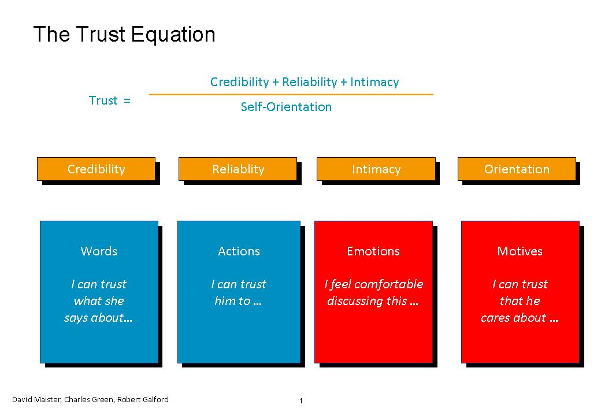Lessons from Whitehall “Party-Gate” and how to begin transforming workplace culture
The long awaited Sue Gray report into the “party-gate scandal” has arrived, and I hope it serves to highlight the importance of businesses fostering a healthy company culture, and inspire businesses to take a lead in doing so. The recent fines levelled by the Metropolitan Police for breaking lockdown rules signalled just the beginning, with the verdicts of investigations into other ‘gatherings’ making it clear as day these events were not ‘one offs’ but evidence of a deeper cultural issue.
How could a culture be allowed to develop and flourish where the Prime Minister, his wife and the Chancellor of the Exchequer thought it was acceptable to break the rules they had set? Where the Civil Service Ethics Chief, Helen MacNamara, thought it would be fine to let her karaoke machine be used in what has been described as a ‘raucous’ party in June 2020 during the national pandemic lockdown? Where officials’ excessive drank while the rest of the country was in lockdown, to the degree that one member of staff was sick and a minor fight broke out?
In some cases, junior members of staff believed their involvement in events was permitted because senior members of staff were there, with the report saying: “The senior leadership at the centre, both political and official, must bear responsibility for this culture.” Equally, we should look at why those who did speak-up found themselves ignored.
Company culture

At HRO I have been fortunate to mainly work in positive, trustworthy and practice-what-we-preach organisations, but I’ve had enough experiences and re-counts from associates of observable unhealthy, unsafe organisational cultures being widespread. Such cultures are characterised by lack of accountability within fragmented, complex management structures coupled with an inability for staff to speak out against wrongdoing for fear of retribution.
I’m curious what you think – do you feel lessons will truly be learned from this kind of public enquiry? I’m personally doubtful. Yes there is clearly an outraged cry for a pound of flesh: heads roll, but I suspect once the stupor dies down, nothing actually changes. However, I would argue that the Sue Gray report is the perfect trigger to change the way we think about culture and transform our companies in to ones which put their people, purpose and values first.
So how do we genuinely learn lessons and respond?
1. Accept there is a genuine issue and be accountable for high standards
Firstly, as with any major life change or tackling an addiction, genuine acceptance of the problem is crucial. In this case the Sue Gray report provides a basis for acceptance of a deep-rooted problem that appears to have existed and got gradually worse for years.
While acknowledging that cabinet ministers were under immense pressure during the pandemic as they were charged with executive decisions, for any organisation, the ultimate maxim is ‘don’t let what you do drive who you are’ – in other words, don’t use the tough stuff as an excuse for bad behaviour. It is imperative to maintain hold of high standards even when you’re going through difficult times. If they thought ‘we’re making life or death decisions here, that’s ok, we’re different’, then Whitehall are divorcing themselves from the rules they are making – the antithesis of accountability.
2. Revise Policies
Whitehall experienced a blurring of lines between work meetings and social gatherings, with the report highlighting a number of workplace events where there was “excessive alcohol consumption”.
“The excessive consumption of alcohol is not appropriate in a professional workplace at any time,” the report said, calling on government departments to ensure they each have a “clear and robust policy in place covering the consumption of alcohol in the workplace”. Personnel Today also caution that having a drinking culture in an organisation could “create divides between colleagues, with there being a thin line between people socialising and being happy together and those drinking lots to be part of the in-crowd”.
3. Re-establish workplace values and universal principles
A healthy workplace culture is one that creates an environment of psychological safety for its employees.The culture of any organisation is set from the top, meaning in this case the prime minister was responsible for ‘setting the tone’ just as with any other leader. If the leadership is poor, this trickles down from the top to the bottom of any organisation, affecting morale, turnover, performance, and employee mental health and wellbeing.
There must be an understanding and restating of the universal principles of an effective workspace: trust, mutual respect, a keen sense of common purpose, inclusivity and psychological safety. These aren’t just moral and ethical principles but also factors which enable high performance.
Managers and employees must state and restate these principles, reflecting deeply on how they can align their own behaviours, to create a transformational workplace. The most challenging aspect is how to respond when these behaviours are misaligned – as in the case of Whitehall. Staff holding functions during lockdown and alcohol abuse in the workplace certainly do not talk to the aforementioned principles.
5. Walk the talk to be trustworthy
Let’s look deeper at integrity. Or should I say the lack of integrity when it came to party-gate? We talk about integrity as matching our words and our actions. At the time, the government, and Boris in particular, were telling us how we must behave to stop the spread of COVID, protect the NHS and save lives. And they were very clear on how we needed to behave to do this. But their actions were million miles away from the guidance they were giving us. I’ve heard a few people comment that does it really matter, it was just a party? But in my mind it absolutely 100% does. Because when we lose integrity, we lose trust. Talking of trust. I always return to The Trust Equation – first published in the Trusted Advisor by David Maister et al. I feel Boris and his team could benefit from taking a look at this. The model is below:

5. Enable and encourage staff to raise issues
Another major concern raised in the Sue Gray report was that staff who wanted to raise concerns about behaviours they had seen in the workplace at times felt unable to do so, with Gray stating: “No member of staff should feel unable to report or challenge poor conduct where they witness it.”
The government has since introduced measures to allow online and in-person reporting, which Gray said was “reassuring to see”, adding: “I hope that this will truly embed a culture that welcomes and creates opportunities for challenge and speaking up at all levels.” This needs to not just to be a one off token push of ‘encouragement’ but a fundamental shift in culture and deep and meaningful listening.
Culture transformation
Crucially, cultural transformation is a shared responsibility which involves everybody. Everyone is part of the problem but also part of the solution. You cannot simply sack a leader or punish your way out of a crisis – that system has been in place for centuries and it has never delivered. Senior leaders such as Boris Johnson are a symptom, as much as they are a cause, of the problem.
My hope is that the Sue Gray report will not only shine a spotlight on the perils of unhealthy company cultures, but also inspire my fellow HR professionals and business leaders to take the lead in transforming these systems which are unfit for purpose. In this way, HR can become custodians of the way in which organisations treat their people, champion inclusivity, ensure justice and fairness, and enable performance through building a climate of trust.

Hannah Powell
Categories
- Coaching (9)
- CSR (1)
- Culture (1)
- Culture & Engagement (33)
- Diversity and Inclusion (16)
- Employment law (38)
- Inspiration (12)
- Leadership (14)
- Learning & Development (7)
- Recruitment (12)
- Reward (9)
- Self-development (2)
- Tips & tricks (11)
- Uncategorized (18)
- Welfare and Wellbeing (26)
